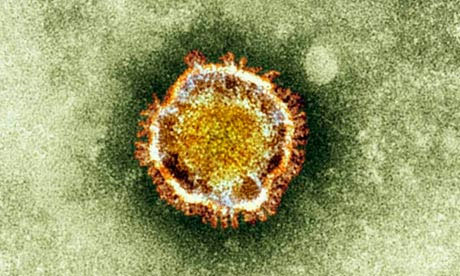
DGCI approves 'restricted use' of anti-HIV drugs on nCoV patients
text_fieldsThis handout picture released and taken on February 5, 2020 by the Fiumicino Airport press office shows a red Cross member (L) using a thermal scanner to scan passengers arriving on all international flights
New Delhi: The Drug Controller General of India has approved the "restricted use" of a combination of drugs used widely for controlling HIV infection in public health emergency for treating those affected by novel coronavirus (nCoV), official sources said on Wednesday.
According to government sources, apex health research body Indian Council of Medical Research (ICMR) had sought an emergency approval from the DCGI for the "restricted use" of the combination of two medications - lopinavir and ritonavir - for treatment of this respiratory ailment.
"We did our own docking studies and found that this could be a potentially useful drug against nCoV," an ICMR official said.
This combination along with other drugs has been used in clinical trials in China, where the coronavirus first emerged, and Thailand for treating nCoV-affected patients.
"The DCGI has given a no objection for restricted use of this drug combination -- lopinavir and ritonavir -- in case of a public health emergency on patients affected by nCoV as per the treatment protocol designed by the ICMR," a government source said.
"Before using this combo of drugs on any patient, the doctor has to take an informed consent from the patient," the source said.
India has reported three confirmed cases of nCoV so far from Kerala, where nearly 2,000 people are under observation in hospitals and homes.
Three medical students of Wuhan University, all natives of Kerala, who recently returned to India have tested positive.
"As of now, patients are being treated with supportive therapies," another source said.
On the directions of Prime Minister Narendra Modi, a Group of Ministers (GoM) has been formed to review, monitor and evaluate the preparedness to contain the deadly nCoV infection in the country. The GoM had held its first meeting on Monday.
The Health Ministry has said that various precautionary measures have been undertaken in close coordination with the ministries concerned at the central level.
Five individuals of the 248 who were shifted to the Army's Base hospital after they showed symptoms of cough and cold, have tested negative for coronavirus.
Also, five out of the 406 people evacuated from nCoV-affected Wuhan, who are admitted at the Safdarjung Hospital have tested negative.
As many as 401 people have been quarantined at the Indo-Tibetan Border Police (ITBP) facility in Delhi's Chhawla area since the last week after they were brought in two batches from Wuhan onboard separate Air India flights.
All those admitted to quarantine centres of the Army and the ITBP in and around the national capital are medically examined on a daily basis, though none of them has tested positive for coronavirus, health ministry officials said.
As part of India's preparedness, passengers arriving from Thailand and Singapore, besides China and Hong Kong, are being screened for possible exposure to nCoV at all the 21 airports.
Screening is also being conducted at international seaports and border crossings.
The death toll from the coronavirus outbreak rose to 490 in China on Tuesday while the number of those affected by the deadly disease has crossed 24,000.
One death was reported earlier this week from the Philippines.
So far, the virus has spread to Thailand, Singapore, Japan, South Korea, Australia, Malaysia, Taiwan, Vietnam, Macau, Philippines, Nepal, Sri Lanka, Cambodia, United States, Canada, Germany, France, Britain, Italy, Russia, Finland, Spain, UAE and Sweden.























